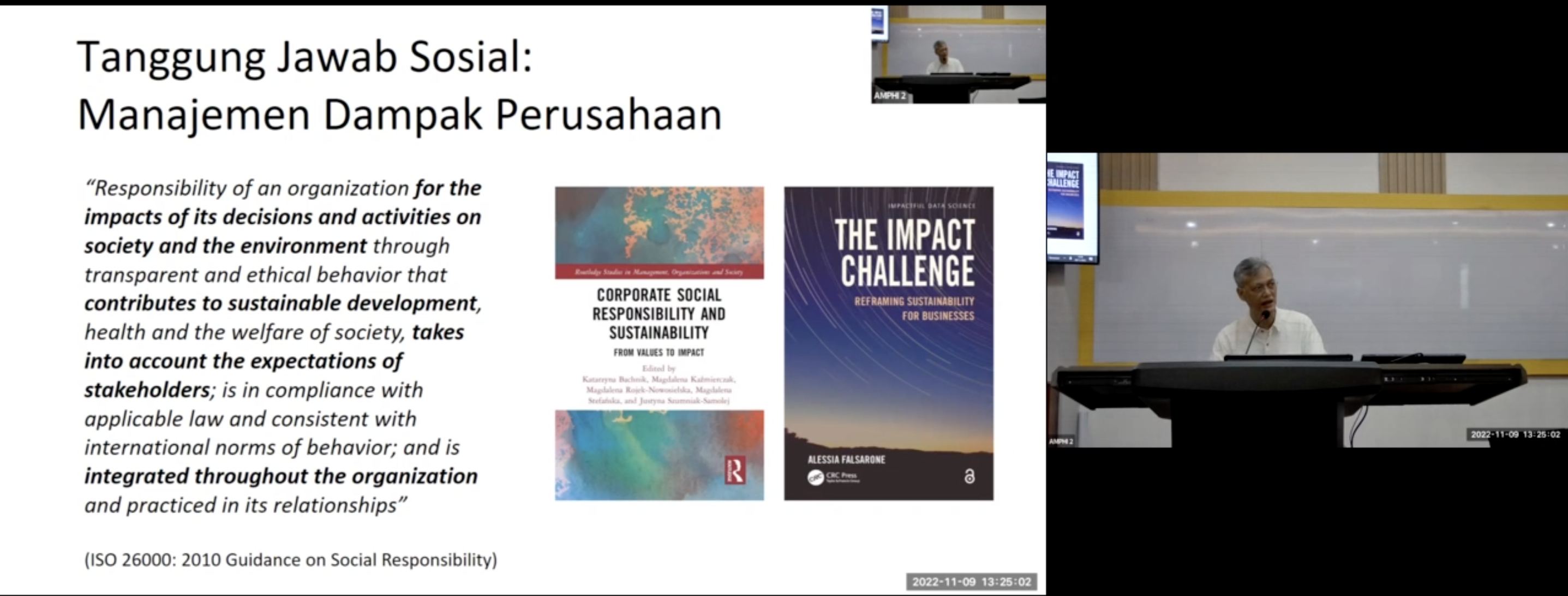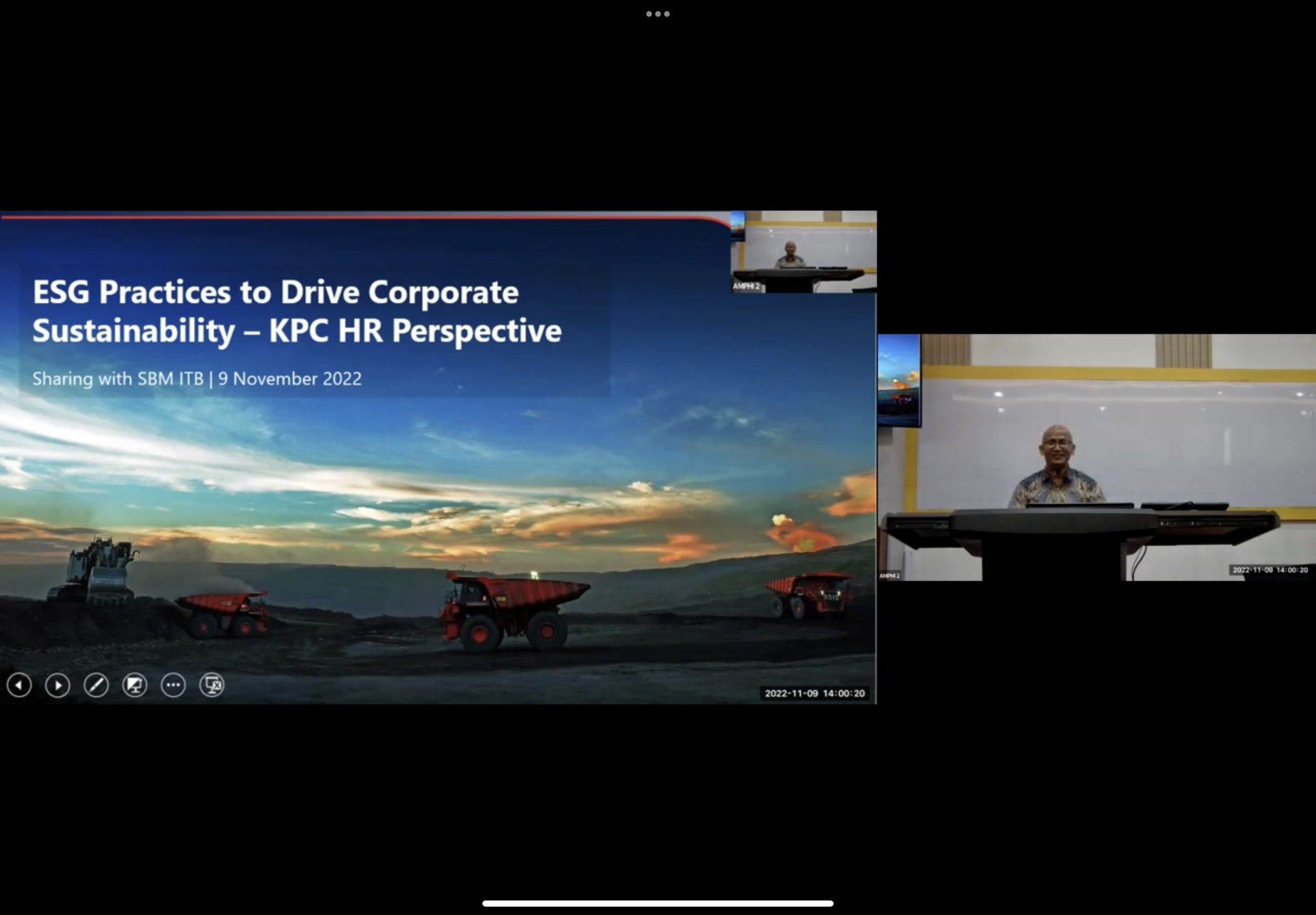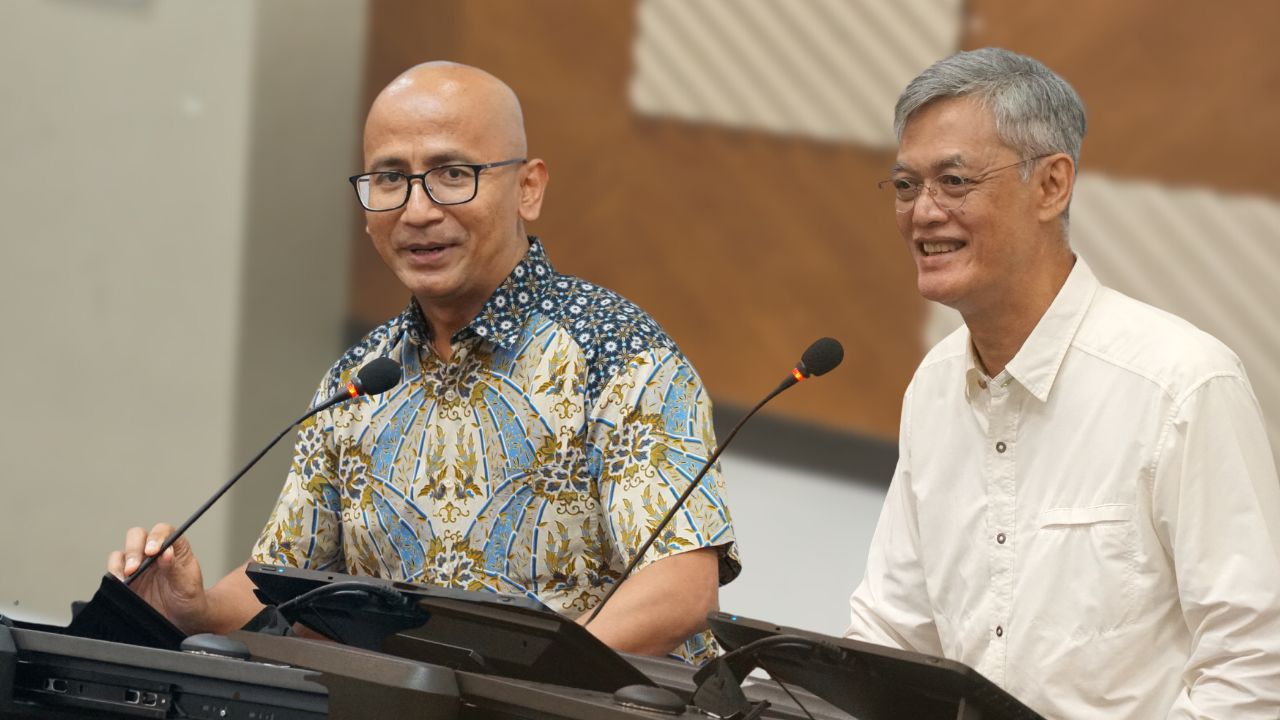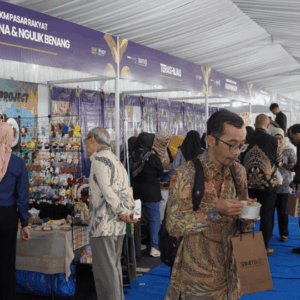Some people have different motives when building a business. Some think the financial factor is the most important when selling the value of products and services. Although, earning income in any form is indeed important, it will not be enough to be sustainable. Today, most people are familiar with the term Environmental, Social, and Governance (ESG). So, can ESG benefit a business?
Two guest speakers shared their knowledge and insights about ESG in a guest lecture at SBM ITB on Wednesday (9/11/22). They are Sonny Sukada, the Director of Corporate Sustainability at Landscape Indonesia, and Venansius Bangun Nuswanto, the Manager of Learning & Development at PT Kaltim Prima Coal.

According to Sonny, creating a business is to produce solutions to address the problems for the people and the earth instead of generating profits and problems. Currently, said Sonny, ISO 26000 is voluntary and three conditions still need to be monitored: impact management, risk management, and stakeholder expectations.
Sonny studied the theory of evolution. Sonny elaborated that today, humans are in a “value system” where businesses can involve CSR and consider ESG prospectively. However, many use the theory of “shareholder value” and “share value” with the main interests only revolve around financial returns, profits, losses, and negative impacts rarely internalized.
According to Sonny, CSR is only considered as a donation. Sonny recommended business schools join the Principles for Responsible Management Education (PRME), study initiatives from well-known business schools, integrate CSR or business ethics in SBM courses, and focus on a briefing about business in the future.

Venansius Bangun Nuswanto, the Manager of Learning & Development PT. Kaltim Prima Coal assesses the importance of HR to ESG. As an extractive company, KPC complies with regulations so that the company’s image is favorable among the public.
Venan believed that HR can support ESG as a solution in a company. These include building mindset and capabilities, improving the well-being of employees and families, continuously improving engagement and performance, and maintaining harmonious industrial relations.





